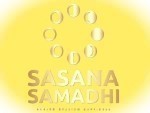In yoga, one can practice visually, either through an instructor or through video performance. However, meditation is difficult to practice independently and individually because it is practiced with one’s eyesight blocked out.
It is said that information from the outside world accounts for more than 90% of the information obtained by human vision. When practicing meditation with that source of information almost entirely lost, considerable knowledge and extraordinary patience are required.
Generally, meditation is considered to be a difficult practice. However, sports, martial arts, tea ceremonies, and the rest of the world also have foundations and rules; one improves by practicing them repeatedly. Meditation has the same fundamentals and rules.
We will teach these contents step by step in a way that is easy for beginners to understand FREE.
read more
Dear all visitor,
My method of meditation is preached by the Buddha 2,600 years ago, and is also the essence of what is generally called “primitive Buddhism.” As you all know, Buddhism is a path to Nirvana through good deeds. The essence of good deeds is nothing other than “meditation.”
The Buddha’s teachings that exist today are found in the Nikaya, the Buddhist scripture, and the Majjhima Nikaya, which is a compilation of the teachings, contains 152 sutras. However, these are written in Pali, an ancient Indian language, and are difficult for ordinary modern people to translate directly. The original Nikaya scripture is stored by the government in India, Thailand, Sri Lanka, Myanmar, and the UK. In particular Thailand, Sri Lanka, and Myanmar, Theravada monks learn Buddhism based on this original text.
Although Buddhism as knowledge continues to exist, the current state of the practice of meditation as taught by the Buddha is serious. I believe that the biggest factor is the lack of experienced instructors who have seriously practiced meditation.
Meditation practice is not an exclusive domain of Buddhism. Meditation is mentioned in Hinduism and even in the Vedas as ancient times. Christians’ long periods of silence are also a form of meditation. Muslims pray five times a day in sync with the adhān, and also meditate in the sense that they concentrate on the prayer and forget themselves. When professional tennis players compete in the Wimbledon finals, they concentrate for long periods on the game. This is also a form of meditation. They also concentrate when learning the tea ceremony etiquette. These actions are also meditation.
In other words, meditation is not something that is done in a special place or situation but can be practiced at any time during daily activities. Therefore, meditation practice has no racial or religious barriers.
Since my 20 years of experience in meditation which are Sati-patthana and Zen, I understand well the difficulty of practicing alone and the need for patience. Furthermore, studying and practicing the Nikaya on your own is like going up to a higher floor without stairs. I try to use this experience to explore the creativity of Buddha’s meditation so that it can be passed down to the next generation.
Can a practical method that suits modern people emerge from the teachings of Buddha, which have transcended 2,600 years?
I will try to face such a challenge as my life work.
Since 2006, I have practiced meditation in meditation centers and temples in various countries and regions. I have also meditated alone in the mountains where no one comes, listening to the cries of beasts. I spend over 23,000 hours for purely practice meditation, also investigate the Nikaya with additional time.
We can meditate in any environment on earth where people can live. In order to this perspective, I would like to try online meditation.
You may be asking yourself, “Since I can meditate alone, is there really any need to get together online?”
My answer, based on my own experience, is:
“Evaluation self objectively” or “Difficulty of self-improvement.”
It comes down to that answer.
Therefore, I hope that by meditating in a small group of a few people, we can encourage each other and get into the rhythm of your mind with my advices.
Best regards,
Bhante D Sanjiva

